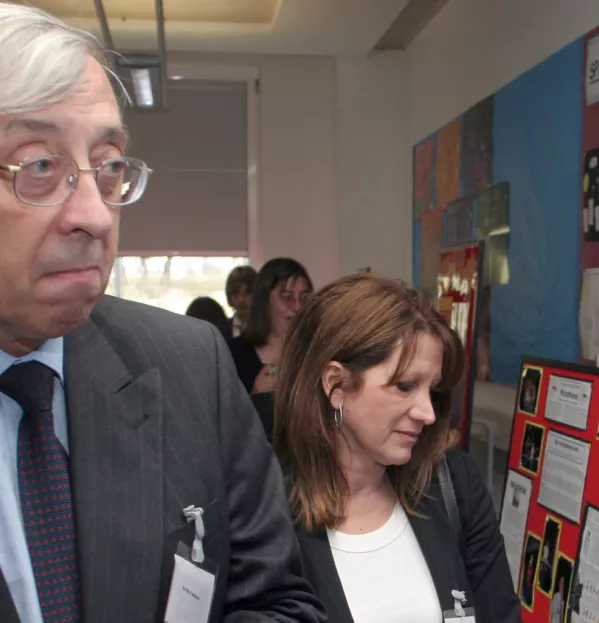‘No powers’ to deal with repeat of Trojan Horse

The schools tsar ministers appointed after the “Trojan Horse” scandal is warning that academisation means the government lacks powers to deal with a repeat of the affair, or to intervene in failing schools.
Sir Mike Tomlinson has used an exclusive TES interview to spell out his concerns about how difficult it was to remove teachers and governors from schools in Birmingham affected by the Trojan Horse affair - in which strict Islamic regimes were found to be operating in secular state schools.
The former Ofsted chief inspector, who has just finished two years as Birmingham’s education commissioner, said that ministers had no formal powers to remove staff in such circumstances.
Sir Mike said the government also needed new powers over England’s academies because a “significant proportion” of the schools were consistently underperforming and ministers could not adequately intervene.
“The Department [for Education] may well argue that it does have powers,” he said. “But my view is that, whatever powers it has, I don’t think they’re sufficient to deal with the sort of situation that happened in Birmingham, nor with the situation where we have a significant proportion of academies which are described by Ofsted as ‘inadequate’ or ‘requiring improvement’.”
Sir Mike said that he had raised the issue in a report to the DfE in August, but had yet to receive a formal response.
‘Persuading’ resignations
The Trojan Horse scandal emerged in late 2013, when Birmingham City Council received an anonymous letter referring to “Operation Trojan Horse”: an alleged plot by some Muslim groups to take over schools in the city and run them on strict Islamic principles. In September 2014, Sir Mike was appointed by then education secretary Nicky Morgan to oversee the council’s work to address the situation.
Speaking in his first interview since his appointment ended in July, Sir Mike said it had been difficult to take action against schools implicated in Trojan Horse because ministers lacked the power to intervene in academies unless it was over financial management.
Colin Diamond - who was seconded from the DfE to work as the city’s deputy education commissioner - had no other option but to “persuade” individuals at the schools to resign, Sir Mike said. This was because “there were no formal powers” to get rid of them.
The whole academisation experiment has been conducted on the basis that everyone will do the right thing
Sir Mike said that the lack of power over academies also had much wider implications and was a “significant weakness” in the schools system because of consistent underperformance by some multi-academy trusts (MATs).
“Even if an academy is not performing well, there is limited statutory power within ministers’ hands to do much about it,” he added. “How can you possibly accept a situation in which you know young people are receiving a less than good education? It’s simply not possible to sit on your hands at that point.
“Just as a local authority can be held to account…it seems to me that there need to be similar powers to exercise over MATs.”
‘Inadequate’ accountability
The comments will add to pressure on the government to reform the academies system. In a 2014 report into Trojan Horse, Sir Mike’s predecessor as commissioner, Peter Clarke, said that academy accountability mechanisms could prove “inadequate…where the governors are pursuing an inappropriate agenda”.
A Commons education select committee report into Trojan Horse last year warned that academy autonomy made it “easier for a group of similar-minded people to control a school”.
Sir Mike said that while he had “every faith” in Sir David Carter, the national schools commissioner, he remained unconvinced that regional school commissioners (RSCs) had the tools that would be needed to improve failing academies.
“Their main role is to help with the conversion of maintained schools into academies, and to that end, obviously, that’s where their focus will be,” he added.
RSCs lacked sufficient resources, could not make targeted interventions in schools, and, while they could remove an academy from a chain, this would happen only in an “extreme situation”, Sir Mike said. “They can lean on the MAT, but nothing more,” he added.
Mary Bousted, general secretary of the ATL teaching union, supported the call for greater oversight of academies.
“The whole [academisation] experiment has been conducted on the basis that everybody involved with schools will do the right thing all the time,” she said. “That’s proved not to be the case in too many cases.”
A DfE spokesperson said: “We have more power than ever to intervene in schools causing concern, and we take swift, decisive action to make sure every child has access to the best possible education.
“Academy trusts operate under a strict system of oversight and accountability - more robust than in local authority schools.”
You need a Tes subscription to read this article
Subscribe now to read this article and get other subscriber-only content:
- Unlimited access to all Tes magazine content
- Exclusive subscriber-only stories
- Award-winning email newsletters
Already a subscriber? Log in
You need a subscription to read this article
Subscribe now to read this article and get other subscriber-only content, including:
- Unlimited access to all Tes magazine content
- Exclusive subscriber-only stories
- Award-winning email newsletters